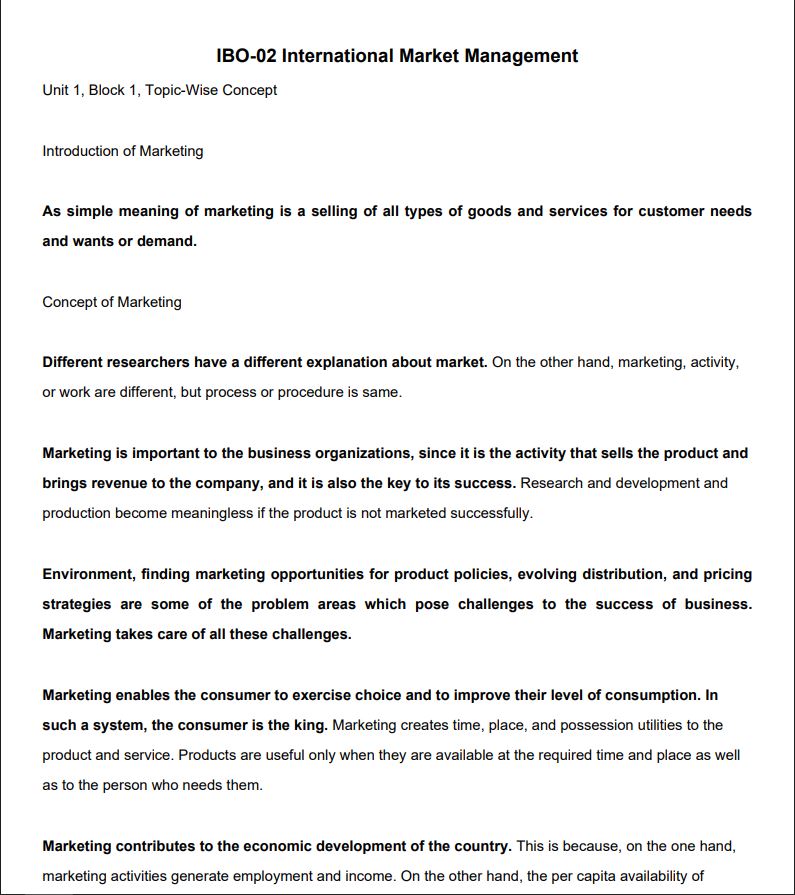📄 International Marketing Notes (IBO-02)

Includes:
- Complete Unit-wise Summary
- IGNOU-oriented Important topics
- Exam-focused content

Includes:
As simple meaning of marketing is a selling of all types of goods and services for customer needs, wants, or demand.
Different researchers have a different explanation about market. On the other hand, marketing, activity, or work are different, but process or procedure is same.
Marketing is important to the business organizations, since it is the activity that sells the product and brings revenue to the company, and it is also the key to its success. Research and development and production become meaningless if the product is not marketed successfully.
Environment, finding marketing opportunities for product policies, evolving distribution, and pricing strategies are some of the problem areas which pose challenges to the success of business. Marketing takes care of all these challenges.
Marketing enables the consumer to exercise choice and to improve their level of consumption. In such a system, the consumer is the king. Marketing creates time, place, and possession utilities to the product and service. Products are useful only when they are available at the required time and place as well as to the person who needs them.
Marketing contributes to the economic development of the country. This is because, on the one hand, marketing activities generate employment and income. On the other hand, the per capita availability of essential consumer goods is an indicator of the level of poverty or absence in a country.
Marketing offers career opportunities to a large number of people. Marketing-related occupations account for a significant portion of the employment generated in a country.
Marketing requires several activities to be done. Mostly, there are 4 P’s that explain the concept of marketing:
Representation: → Product → Price → Promotion → Place
Whenever we study about marketing and international marketing, the home country followed using marketing concepts to grow up internationally.
Refers to marketing within a single country. The company has a domestic focus, targeting only local customers.
When marketing products or goods selling out of the country or nation, it’s called International Marketing. On the other side, International Marketing is the multinational process of ideas, goods, and services to create exchanges that satisfy in foreign countries
Multinational Marketing is the adaptation of the international marketing mix suitable to the environmental differences in market environment like culture, social factors of perception, and general policies. Though it's not just marketing and selling, doing business around the world is so complex like a structure. And the only way to succeed internationally is to adapt to the different aspects of each national market.
Whenever we have to study marketing, we must know about Global Marketing. When each country produces or sells goods to the other countries and acts related to countries, we call it Global Market. Customers have satisfaction to the products or goods whenever marketing.